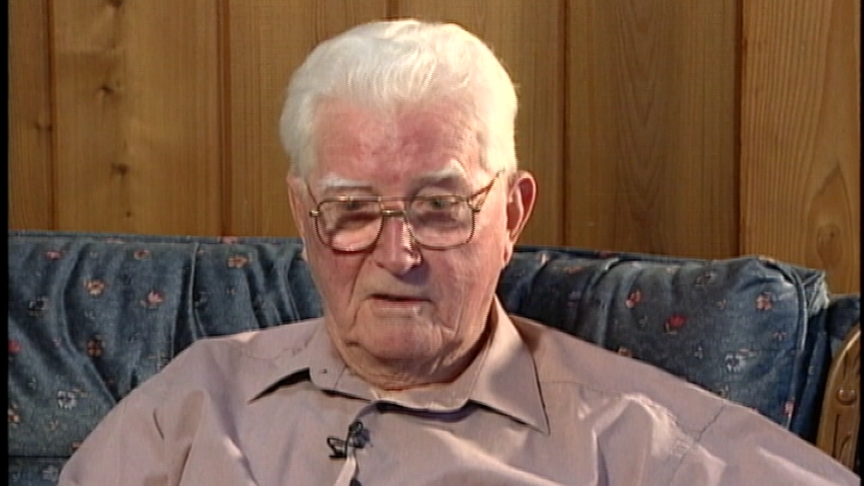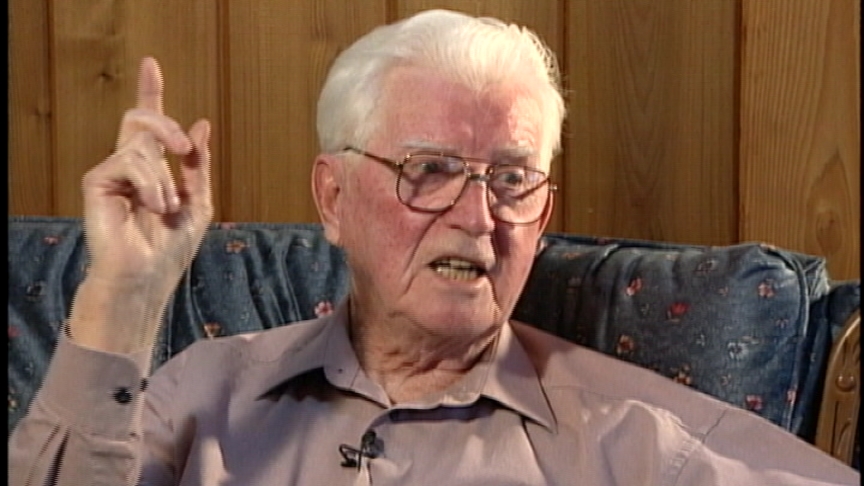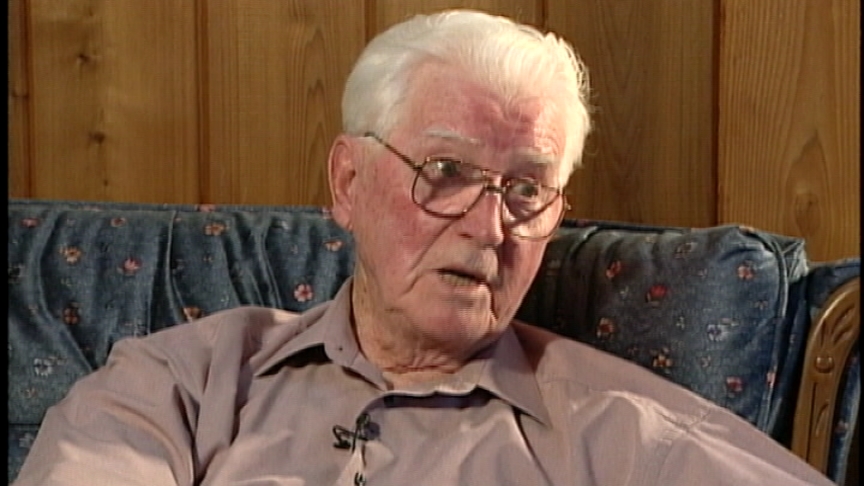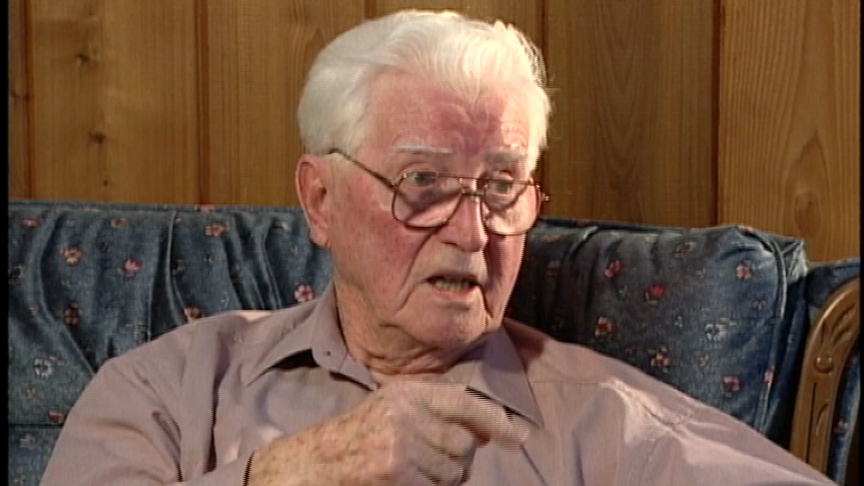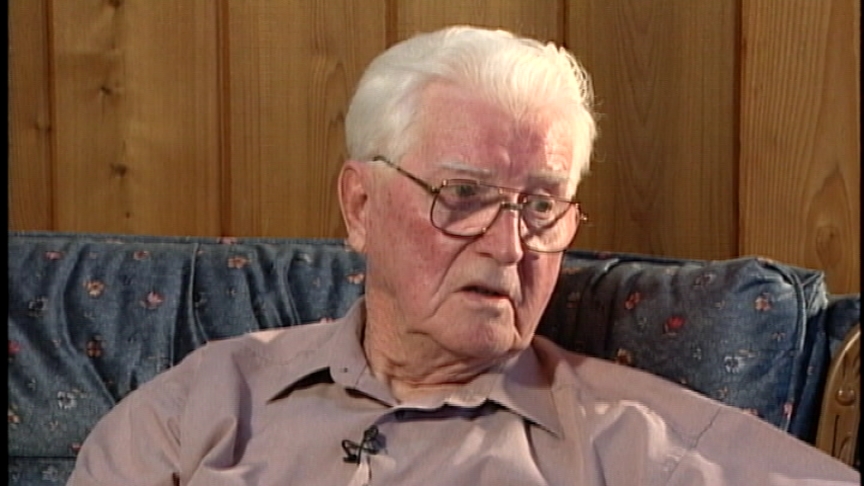Interviewer: What was the name of that
ship you were on?
Atesbull.
Interviewer: Now, that ship was sunk by a------?
That was later sunk by a Japanese submarine.
Interviewer: Was that very long afterward?
Not very long afterward. But we sailed regularly
between Australia and, and middle east.
It was in early 1942.
Interviewer: Now that was sunk so then
you got onto another ship?
Then, I was ashore on an island on the . . .
all the crew was saved, you know.
The ship broke in two, but we went into
lifeboat and we lived on the island,
a small island about 10 by 12 kilometres,
called Christmas Island, full of red crabs,
you probably heard about that.
And we were picked up by a British cruiser.
I think it was the Durban or Iayaks,
I'm not sure. And took us into Batavia,
Jakarta it's called now, in Java.
And then, they got orders to get the
heck out of there, anyone who can
find a job on a ship or something,
get out because the Japanese
is pretty close that you know, and it (inaudible).
So I signed on another ship called the
Prominence,and I was aboard it for a week,
when we were shot down by a destroyer.
That was a bloodbath I'll tell you,
that was sheer murder.
Interviewer: A beautiful night on the ocean.
Yeah I was, I was onboard and full moon.
You could see almost, it was as clear as day,
you know. We were on a southern part
of Java is, that's only one port there actually,
called Jakarta, no called Cilacap and
we were around thirty ships in there,
big and small mostly, you know,
about 40 ships anyway.
And then we got order get out,
the Japanese already invaded the island.
So we left, it took us, there was thirteen
Australian soldiers trying to get
away from there.
Then we steamed south, towards Australia,
all of us you know, thirty ships.
The second night we were
around 230, 250 miles south of Java,
when I saw lights and explosions and
commotions, and then I saw ships
blowing up, you know tankers blowing up,
and I saw fire, you know gunfire, shellfire.
And we were a slow ship,
so we were in the back of the convoy.
It wasn't a convoy, we were free to go
wherever we like, but it was a bunch
of ships put it this way.
And since this was a Norwegian ship and
if we are not involved with it,
Barnaby thought maybe,
that I will respect the flags.
Now we went back, hoisted the flag
which they can plainly see.
One destroyer came up and he was
only about, about 100 feet away from us,
probably a little more than that.
And we were lined up, all of us,
in one bunch, on the starboard side
below the bridge and he fired
right in among the people.
There were body parts flying all over the
place and it killed thirteen men and
wounded pretty well everyone else.
Interviewer: Were you wounded?
Well I was wounded too.
I got my left leg shot, in, in the ankle and
bones broken. But I wasn't the worst one,
I was pretty well off I guess.
The second mate, ya the first one was the,
the first mate, he was also the
wireless operator and he went into the
radio shacks to send a signal you know.
And the first thing they did,
was to shoot the radio shack away,
so that disappeared with him in it and
then they shot, fired right at us,
the rest of the crew.
So we spread out the best we could
you know, try to save ourselves.
They didn't sink us, the first destroyer
didn't sink us, he just . . . and then
they shot off the bridge and left.



